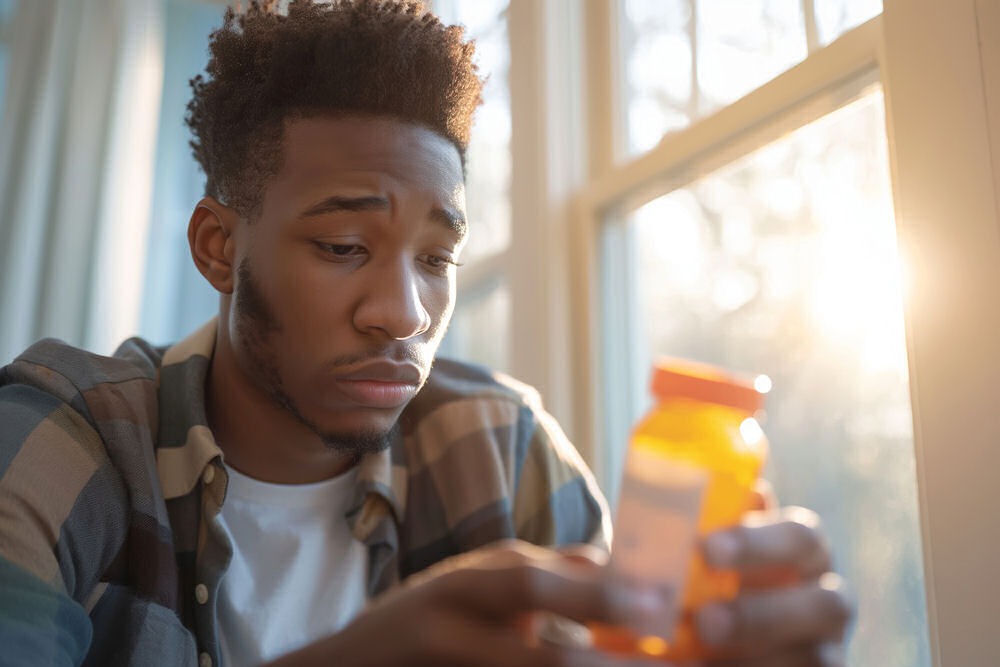
When it comes to party nights or studying sessions, many people may turn to Adderall and alcohol to keep them going. Adderall, a prescription medication used to treat attention-deficit/hyperactivity disorder (ADHD), helps boost focus and energy, while alcohol is often seen as a way to unwind and relax. But when mixed, these two substances can create a dangerous cocktail, leading to serious health risks that many don’t even realize. Despite their different effects on the body, the combination of Adderall and alcohol can cause unpredictable reactions, often putting your health and safety on the line.
In this article, we’ll explore why mixing Adderall and alcohol is so risky and what you need to know to stay safe. Let’s dive into the dangers and why it’s important to be aware of the potential consequences.
Adderall is a prescription medication commonly prescribed to treat attention-deficit/hyperactivity disorder and narcolepsy. It contains a combination of two active ingredients: amphetamine and dextroamphetamine, both of which are stimulants that affect chemicals in the brain and nerves. Adderall helps increase attention, focus, and impulse control in individuals with ADHD.
However, it is also frequently misused, particularly by individuals looking to boost energy or alertness. This misuse, when combined with alcohol, can have serious consequences for both physical and mental health.

Both Adderall and alcohol come with a list of potential side effects, and when mixed, these effects can be amplified, leading to dangerous health risks.
When combined, these substances create an unpredictable mixture. Alcohol’s depressive effects counterbalance the stimulating effects of Adderall, potentially masking the feelings of intoxication, which leads people to drink more than they would otherwise. This can increase the risk of overdose or alcohol poisoning.
People may mix Adderall and alcohol for several reasons, but it is important to note that combining these substances is dangerous and can have serious consequences. Some reasons people might mix Adderall and alcohol include:
Adderall is a stimulant, while alcohol is a depressant. The stimulant effects of Adderall can make someone feel more alert and energetic, potentially masking the sedative effects of alcohol. This can lead people to drink more than they normally would because they don't feel as intoxicated as they actually are, increasing the risk of alcohol poisoning.
Some individuals may mix the two substances in an attempt to enhance the effects of one or the other. For instance, they might believe the stimulant effect of Adderall will counteract alcohol's depressant effect, making them feel "more in control" or "more energetic" while drinking.
Adderall may make some people feel more focused, talkative, or social. Some might combine it with alcohol in social settings to prolong their energy or prevent fatigue, especially during long nights out.
In some cases, individuals misuse Adderall or alcohol for recreational purposes. The combination may be used in an attempt to enhance feelings of euphoria or high energy.

Combining Adderall and alcohol is extremely dangerous due to the following reasons:
Adderall can mask the sedative effects of alcohol, making you feel less drunk than you actually are. This can lead to overconsumption of alcohol, significantly increasing the danger of alcohol poisoning, blackouts, and even death.
Adderall raises heart rate and blood pressure, while alcohol can cause dehydration. The combination can place significant strain on the heart, potentially leading to severe cardiovascular issues like heart attacks or strokes.
Adderall may initially enhance alertness, but alcohol impairs motor skills and decision-making. The combined effects reduce cognitive clarity, increasing the likelihood of accidents, risky behavior, and poor decision-making.
The combination of Adderall and alcohol can create a dangerous cycle of substance abuse. Adderall is frequently misused recreationally, and alcohol abuse is widespread. Together, they increase the likelihood of developing a substance use disorder and dependence.
Chronic use of both substances can severely impact mental well-being. Adderall can heighten anxiety and irritability, while alcohol worsens depression. This creates a vicious cycle where individuals use one substance to cope with the effects of the other, exacerbating mental health issues.
The risks associated with mixing alcohol and Adderall are severe and can include:
Both alcohol and Adderall place stress on the liver. Mixing the two can worsen liver damage over time, potentially leading to significant liver issues, including liver failure.
Both Adderall and alcohol are diuretics, causing dehydration. This imbalance can result in dizziness, muscle weakness, and even more severe issues, such as seizures, if not carefully managed.
Adderall can cause insomnia due to its stimulating nature, while alcohol may initially make you drowsy but disrupts your sleep cycle. The combination can lead to long-term sleep disturbances, resulting in fatigue, poor concentration, and a weakened immune system.
Adderall can initially enhance focus and alertness, but alcohol impairs cognitive functions such as memory, attention, and decision-making. When mixed, these effects can result in impaired cognitive performance, making it harder to concentrate and process information.
Both substances can interfere with the body’s ability to regulate temperature. Adderall can cause an increase in body temperature due to its stimulating effects, while alcohol impairs the body’s natural cooling mechanisms. This combination can significantly raise the risk of overheating, leading to heatstroke in extreme cases.

Withdrawal symptoms from either Adderall or alcohol can be severe, and when both substances are used regularly, withdrawal can be even more complicated. Symptoms may include:
In severe cases, withdrawal from either substance can result in seizures or death, particularly when not properly managed. Because Adderall and alcohol affect the body in different ways, attempting to quit both substances without professional help can be life-threatening.
Individuals seeking treatment for Adderall and alcohol addiction can access a variety of specialized programs designed to address both substance use disorders and any co-occurring mental health conditions. These programs typically integrate evidence-based therapies, medical supervision, and holistic approaches to support comprehensive recovery.
Inpatient programs create a supportive space where individuals can focus solely on their recovery, away from any outside distractions. These programs typically offer comprehensive treatment plans, including therapy, medical support, and family involvement.
Incorporating holistic therapies can complement traditional treatment methods. These approaches may include mindfulness, yoga, acupuncture, and other alternative therapies designed to support overall well-being.

Golden Gate Recovery is a leading rehabilitation center in California that specializes in helping individuals overcome polysubstance abuse, including Adderall and alcohol addiction. Our comprehensive treatment programs offer a combination of medical detox, individual and group therapy, and holistic services to support long-term recovery.
If you or a loved one is struggling with addiction, don’t wait to get help. Contact us today!
Get confidential help! Call Us Now for:

Golden Gate Recovery is a grass roots organization created by men in long term recovery with a simple mission: to continue strengthening our therapeutic and peer led community toward the goal of long term recovery for each client.